|
I am reading the memoirs of Robert Badinter, French politician and jurist, Minister of Justice under Mitterand. He is best known for having abolished the death penalty in France (the French were still guillotining people in the 1970s), and campaigning against it worldwide after leaving office: he also secured many other reforms, equalising the age of consent for gays, suppressing some especially repressive laws, improving prison regime, seeking to reduce use of imprisonment and so on. A sort of French Roy Jenkins you might say. Except that Jenkins would hardly have made it his first ministerial act on coming into office to cancel the haute cuisine lunches served daily to the minister, and the daily replacement of flowers throughout the ministry, pointing to the meagre daily allowance for maintaining prisoners in France. Nor I suspect would Jenkins have devoted pages to extolling the merits of his civil servants, ascribing his success to their brilliance. But what is most striking to an English reader, especially today is the passionate belief of the man. Thus: "For the whole of my career in law, I had dreamed that one day it might be given to me to effect a transformation in French justice, to give it a place of eminence in the heart of European liberty. What was a passion for me as a young man under the spell of history, became a sober ambition as university and experience of law brought greater maturity. My conviction was total: the grandeur of France, that phrase that nowadays has almost an antique flavour, and which had nourished me since childhood, could not reside in its military power, now of the second rate, nor its economic power, important though that remained, nor even in the splendour of its culture, overtaken by the dominance of the Anglo Saxons. The grandeur and influence of France for me had to be measured by its contribution to the cause of liberty. It should shine at home with a brilliance without equal, and demonstrate a global influence greater than its actual power. "This vision, which might seem naive, was instilled in me as a child by my father, in the ‘30s, a time when France lived in the glorious memory of the victory of 1918. In Jewish families where one heard that Yiddish accent so sweet to my ears burnt a deep love of the French republic. Then came the black days of defeat, Occupation, Vichy, persecution and deportation. They reinforced my faith in an indivisible alliance between the grandeur of France and liberty. As it became evident that, as the flame of liberty died down or was extinguished, France was plunged into shame or barbarism, I measured all politics by that standard. That principle kept me from supporting communism when I was a student at the Sorbonne, immediately after the war. It caused me to break with governments of the Left which got bogged down in the war in Algeria after 1956. It forbade me to accept the coup d’Etat of May 1958, despite my admiration for General de Gaulle, man of destiny. It made me rally to the small group of friends gathered round Francois Mitterand in the Ligue Pour le Combat Republicain. And later, in the discussion clubs which grew up among the non communist Left in the 70s, my subject for study and discussion was always the same: what should French liberty be like at the end of the 20th century?" When one thinks of the pitiable succession of mediocrities who have shambled through the offices of Lord Chancellor and Home Secretary in recent decades, each replaced and forgotten within a year or two, each leaving a little more mess behind them (1), it is inconceivable to imagine of any of them harbouring such elevated thoughts. And so degraded is our political culture that if any of them had said something like this, it would have simply been assumed that they were suffering from an unusual form of mental breakdown. But he was not a dreamer. Badinter was - or rather is, happily alive and engaged still in his 90s - that rarest thing in politics, an idealist who got things done. As we say: a mensch. (1) Or Grayling's case, a vast mess
0 Comments
A thing I keep saying is, what the criminal justice system does, doesn't affect the level of crime much, or perhaps not at all. Which means that most of what politicians say or do on crime is nonsense. This graph might help show why. It plots crime v convictions/cautions over half a century. The figures are taken from 'Criminal Statistics 20001, and are dodgy in various ways, most notably that they were read off a graph since (grrr!) the statisticians published a graph without publishing the data which generated it (that's a hanging offence, BTW). But for illustrative purposes it'll do. See?
Now, your Tory will say, OK, all the more reason to put in enough police and CPS and courts and prisons to move that orange line much closer to the blue line. 3 problems. 1. Since 2000, the blue line has not risen (a fact incompatible with the idea that the work of the CJS affects crime rates) 2. Since 1995 we have used a much more accurate measure of the amount of crime than police stats, known and documented (by the Inspector of Constabulary) to be ropey to say the least, , by asking the people every year how much crime they have experienced and they say, the people of this country say, the voters say, crime has more than halved since 1995 (as above, but even more so) 3. bringing blue and orange lines together would require about a ten fold increase in spending on the police, courts, prisons, something even the new high tax, high spending Tory party might have a problem with. 1,000 new prisons....mm. But funnily enough, I do have ideas on what to do to bring crime levels down. (TBC) NOTE On re-reading this, see I was wrong to single out the Tories for criticism. The only Ministers ever to state clearly that we use too much imprisonment, to manage the prison population down as an aim of policy and to close prisons as a result, were Tories. It took courage and in the case of Ken Clarke, made him a non person in his own party. No Labour Minister has ever shown that courage. Indeed the fastest ever increase in prison numbers was under Jack Straw, Labour opened prisons at a faster rate than before or since and even now, Labour is engaged in a bidding war with the Tories to force up sentences even beyond what they proposed. Labour's record is ever bit as shameful as the Tories, but a lot more disappointing. Last month's budget gave MoJ more than many expected (including me). So, is MoJ now on an even keel, after 5 years of running a £1bn structural deficit? Can we look forward to a flourishing criminal justice system? Absolutely not. While there are some small welcome improvements, when you look into it, the settlement essentially represents the continued unfolding of two of the great public policy disasters of our times: 'austerity', and the never-ending increase in use of prison, already higher than almost every major European country. Compulsive obfuscation syndrome The settlement is hard to interpret because MoJ are playing silly buggers with the figures. While this is not new – Gordon Brown was notorious for ‘re-announcing’ money already previously announced – it is here taken to new lengths. This is done by mixing currencies. Some figures are for changes taking 2019-20 as the starting point, and some taking 2021-22 as a starting point. This is so misleading: they should be announcing what’s new, not trawling over past years, already announced and not 'new' money at all, in fact a lot of it already spent. Likewise, some figures are for the extra in the final year, 2024-25, and some for the extra the extra over the three years 2022-23 to 20-24-25, all rolled together (1). And always, a studied vagueness: when MoJ talk about £xm a year more by 2024-25 for various things – is that compared to the baseline i.e. today, or to 2019-20? It isn’t clear. In one case, probation, they make it clear that all that has been done is to continue existing, baseline funding: so no new money, it appears. Similarly on victim support, they trumpet the increase over 2019-20. That is, they are in part re-announcing extra money already provided in previous SRs. So, we do not know how much extra is being provided from where we stand now, today. The passage on prisons is especially hard to follow, since they mix capital to build and current to open and run prisons. They pronounce that SR 2021 ‘confirms £3.8bn of investment ….over 3 years to deliver 20,000 additional prison places.’ But the capital programme through to 2024-25 was already agreed in SR 2020. It’s impossible to relate that £3.8bn to the previously published figures, since the additional capital actually comes to only £1.9bn. Presumably, some mix of that capital and supporting current spend. But what does ‘confirm’ mean, exactly? As a result, it is impossible to take the SR settlement and see how much growth is allocated to which purposes. And this is not accidental: it is deliberate. Why does the Government feel the need to play games with the figures, when in fact it is a bigger settlement than many expected? Perhaps, when you’re so used to deception and spin, telling the plain truth is just too difficult. Where we start from: a system brought to its knees by a decade of savage cuts Proof that MoJ do have a sense of humour: their proud claim that the settlement is the “largest funding increase in more than a decade for justice system”. They are hoping you’ve forgotten ‘austerity’: a decade of deep cuts – and the damage they have done, and are still doing. But no prison or probation officer or judge or defence or prosecution lawyer or victim or defendant has forgotten the damage done, because they witness it every working day. MoJ spending was cut by a third in real terms from 2010-11 to 2019-20. Deeper cuts than most Departments. Now, as FD I favoured efficiencies. But there's a world of difference between doing the same just as well or better with less, which is true efficiency, and doing less with less, which is what 'cuts' are. Consider prisons, reduced to the worst state in a generation, because the Tories cut staffing on the landings by nearly a third, without cutting prisoner numbers. And they also cut prison officer starting pay, which meant difficulty in recruitment and high leaving rates, not surprising when (as has been carefully documented by the Prison Service Pay Review Body) you can earn as much doing a much easier job elsewhere. And low staffing numbers and high turnover in prison means frightened, inexperienced staff. Result: violence and self-harm have more than doubled. In 2010-11, only 2% of prisons were rated as ‘of concern’, none of them ‘of serious concern’. In 2019-20, nearly a third of all prisons were rated as being ‘of concern’ – 6% ‘of serious concern’. MoJ took a prison service working better than it had done for generations, and damaged it, possibly beyond repair. Today, staffing is still 14% lower than in 2010. And there is no new money in this SR to make good that cut in prison staffing. Nor the cut in pay. On the contrary, MoJ has just outrageously prevented the supposedly independent pay review body from recommending a proper pay award. Or consider courts. MoJ has closed half the courts in the country since 2010. To cut costs, MoJ turned actual face to face courts into Zoom courts, a huge, epochal change in our justice system made without any understanding of how it affects the quality of justice. Those of us reduced to Zoom during lockdown know how different it is to face to face, especially in group settings. In fact, research – not commissioned by MoJ, which didn’t think it important – confirms that virtual courts seriously disadvantages the poor, marginalised and disabled defendants. (Ironically, this is done by the same Government that insists video links are not good enough for GPs, and they must return to face to face.) Or consider cuts to criminal legal aid – halved in real terms since 2010-11, leading to an exodus of defence lawyers who find the work simply does not pay. Barely half as many solicitors are providing criminal legal aid as in 2010, and the number of Chambers with full practice criminal barristers is down a fifth since 2015. As we shall see, this is a fatal flaw in MoJ’s recovery plans. (There is some money to extend eligibility for legal aid, but none to pay lawyers a decent rate, so in effect they are just extending the malfunction.) No money is provided in the SR settlement to put right this appalling record of serious damage to so many parts of the criminal justice system. Thus the first of our great public policy disasters, austerity, blunders aimlessly on, damaging lives, damaging justice. What then is the money for? So, if all this new money isn’t to put the system back into reasonable health, what is it for? As I say, MoJ make it impossible to quantify that at all precisely, but it’s clear than most of the increase in spending is to manage huge increases in demand , which is caused by two things: the backlog of court cases that built up during lockdown, and the massive increase in prosecutions expected as a result of increasing police numbers by 20,000. Obviously, it’s desirable that these things are remedied, indeed, essential. During the last decade, the Tories cut police numbers by around 20,000. As a result, the clear up rate has fallen (under the party of law and order!) to its lowest on record. And yet, despite this falling off in prosecutions, court delays have also reached new heights, with new cases being listed for hearing in two years time. Clearly these problems had to be fixed. [Though one might inquire, why the Tories first cut 20,000 police and then added 20,000 police back…..? And no, its definitely not because in the meantime they fixed the national debt or government spending deficit – both are infinitely worse this year than at any time in the past decade. And by the way, cutting 20,000 meant above all losing the more experienced officers, the ones who’d teach new recruits how to do the job well. And by the way, it meant paying a shedload of money to get them to go. And by the way, re-recruiting 20,000 means another shedload of money to train the new ones. The Tories used to be careful with public money.] The reason why this is in fact not such good news is hinted at by asking the question: how come, if prosecutions slumped, prison numbers stayed much the same? The answer is: because since 2010, proportionate use of custody (the % of those convicted who are sent to prison) and average sentence lengths have been steadily climbing. And a quite a lot of that increase has been driven by Government policy. 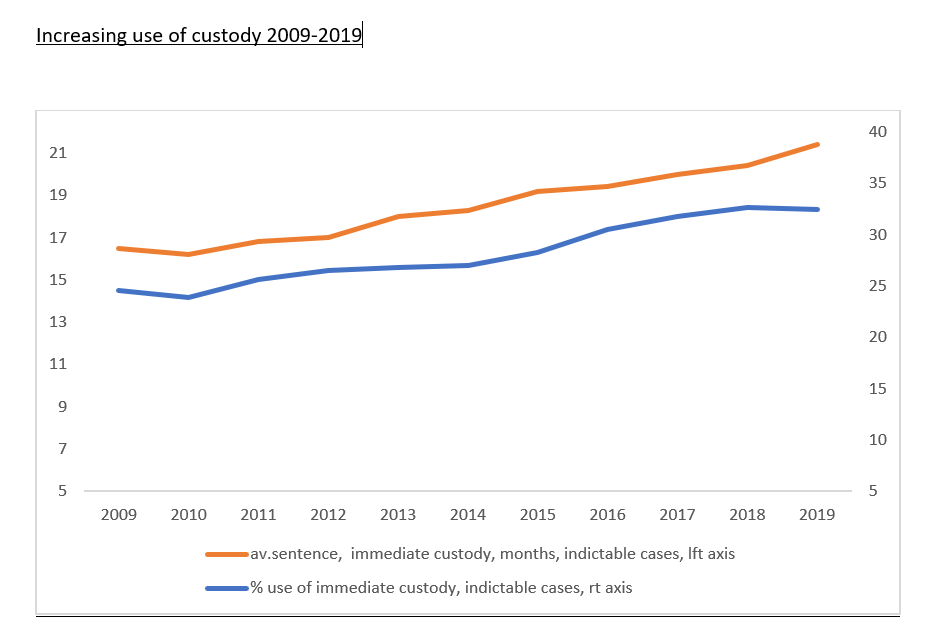 So: the slump in the number of crimes brought to justice, as a result of cutting police numbers, meant that rising use of prison by the courts didn’t affect immediately drive up prison numbers. But obviously, there was a very large IOU: because when police numbers are increased, and when prosecutions increase, there will be an enormous rise in prisoner numbers. So, nothing to do with there being more crime. It’s simply the deferred cost of increasing use of prison since 2010. And it is an enormous increase, on top of the large increase caused by tackling the backlog of court cases, due to COVID. Bear in mind that the margin of spare capacity in the system now is about 2%. That by the way isn’t the uncrowded capacity: it already assumes that every prison is as heavily overcrowded as it safely can be. And we know that overcrowding of this scale means prisoners located far from their families, programmes to cut reoffending overwhelmed or not available, staff hard put to stop bullying and self harm. It is damaging to everything prison is supposed to achieve. Now, MoJ say that the SR settlement includes funds for 20,000 new prison places by ‘the mid 2020s’ (BTW I make that precisely…2025. Not, say, 2027. Still less 2028). Note in passing that that number has already by risen by 2000 since. Note also that as recently as MoJ was saying the extra places would ease overcrowding. They wont now. There isn’t the slightest, the least, the tiniest chance of MoJ building 20,000 new places between now and 2025. It isn’t a question of funding. It just cannot be done, in 4 years from now. I know. It was once my business, when we did it faster, better and cheaper than ever before or since (2). Recall this is the same Department that announced in 2015 a 10,000 place building programme that would open 5 new mega prisons by 2020, but by 2020, hadn’t opened a single one, had provided just 206 new places out of 10,000. Even now, there are only 2 prisons now under construction: they will provide next year, 2022, just 3,360 places. Where are the other 16,540 coming from? That's 10 of the modern mega prisons. Prisons take, at best, 2 years to build. Sites are hard to find. Planning objections stall plans. Around the year 2000, using PFI which achieved record speeds for designing building and opening new prisons, we manage to open 2 new prisons a year. MoJ is currently taking 6 years to do so. But now they seem to think they'll find sites, get planning approval, build and open 10 more of them, in 48 months! And it’s not just building, it’s staffing. We are in the midst of huge labour shortages. Prison officers pay is demonstrably extremely uncompetitive. It is a hard, hard job: others, much less stressful, pay more. Meanwhile, others are fishing heavily in the same pool: 20,000 new police officers and huge expansion of the UK Border force. Both are already tempting serving prison officers to quit. The quit rate is currently 10% for officers, over 13% for OSGs. A decent pay rise has been blocked. And you mean to recruit and train and retain say 5,000 more, in four years? Really? So: the Government has just announced a programme which everyone involved knows is completely unachievable. It is highly likely – almost inevitable - that numbers will outstrip safe capacity well before 2025. Already, MoJ is earmarking 2000 ‘temporary’ buildings, ‘Portacells’, for permanent use. This is not an unforeseen difficulty: like probation privatisation, it is a well-publicised, entirely foreseeable train crash. Thus, much of this SR merely moves up a gear one of the greatest public policy disasters of our time, the never-ending rise in use of prison. Admittedly, it’s been going on for 25 years now (and Labour has been, and is now, entirely complicit). But this is the first time that such a huge step increase has been deliberately engineered, and the first time that there isn’t the slightest possibility of meeting it. It is such a pointless thing to do, in so many ways. It will not in the least relieve our current high level of overcrowding – with all that means for running decent, rehabilitative prisons – it’ll make it much worse, and quite possibly crash the whole system. It will not reduce crime: and crime is in any case at a historic low. As is public worry about crime. Moreover, this penal inflation is an addiction that is incurable, it is endless. It will go on and on because it is not a rational policy designed to achieve some social aim: it is the mere feeding of an appetite, and the feeding of it is a political end in its own right. The spending of such huge sums of money on something that does no social good, that feeds off and feeds into a spirit of mean vengefulness, is the very opposite of the ‘investment’ MoJ love to trumpet. There is something profoundly malign about it. The proliferation of super-sized prisons across our green and pleasant land is the modern equivalent of Blake’s dark, satanic mills. It taints everyone involved in it. And, even in its own terms, it will fail. Three big risks MoJ’s spending plans are vulnerable to three other risks, besides the impossibility of building prison places fast enough. The first is inflation. Inflation, like termites in a house, chews up money and turns it to dust. So much depends on how realistic the inflation assumption is that’s built into the settlement, HMT’s claim that MoJ is getting an average boost of 3.3% a year in real terms appears to be based on an inflation peaking at around 4% next year, then returning to at or very near the target of 2% a year. Many commentators think inflation will be hard to bring down. The impact of Brexit and COVID on supply chains seems likely to last. On pay, we have massive over-employment – too many vacancies needing too few workers. The end of cheap labour from the EU, the end of the public sector pay freeze (announced by the Chancellor) and of course the effects of rising prices on workers, also the cuts made in the last decade in starting pay for prison officers (which makes this exceptionally demanding job no better paid than others far safer and more congenial), all suggest that these forecasts are optimistic. If the assumptions made yesterday prove too low, much of extra money will go simply on paying higher prices, especially for pay. If we are in luck, this will also slow police recruitment. Second, shortage of defence lawyers. As I’ve noted, savage cuts in legal aid have caused an exodus of both solicitors and barristers from the work, which simply doesn’t pay. It’s not just the lower fees, its flat rating fees so there’s little difference between a massive brief and a minor one. This may not seem worrying to Tories, who have moved seamlessly from being the party of law and order to the party that loathes law – our highest judges are ‘enemies of the people, judges re using judicial review to overturn wise, well-thought out government policies, ‘activist’ lawyers are preventing us from dispatching asylum seekers, and of course, defence lawyers are over-paid claret swigging parasites (not City commerical lawyers though, it appears). But you can't – or can't yet, anyway, though Priti Patel, that authoritarian nightmare, may yet sort this one out – have trials, if there’s no defence lawyer. The Government has set in motion an independent review of legal aid, but there’s no money in the SR outcome to fund an increase. And this is ironically one area where the Government is really at the mercy of the market. Finally, there is MoJ’s track record of incompetence: its poor financial management over the past decade, leading to a massive structural overspend since 2015, its botched privatisation of probation and of FM in prisons, repeated botched procurement of tagging, its court programme that cost more than was planned and delivered fewer benefits than was planned, the near complete failure to deliver the previous, far less ambitious prison building programme, the long delays at fully opening their largest ‘flagship’ new prison, Berwyn. There is something truly bizarre about a Government which so publicly despises its civil servants, but still expects them always to do more, faster, and somehow, this time, get it all right and on time. (The Telegraph thinks the answer is to put in ‘business experts’ – gosh, isn't it amazing that no one has ever thought of that before! But then, the Telegraph also think that the PUSS, Antonia Romeo, will change MoJ’s luck, because she knowns about, well, ‘data’ (wasn't there some chap from Barnard's Castle made the same claim?) and is a new broom. I don't want to be the one to tell them that she was the top official charged with ‘transformation’ in the MoJ in the 2010s: her prints are all over the record of MoJ in that decade.) What should they have done, then? Be honest, for starters. Look at the data, see that crime is far less of a problem now than for generations, as is fear of crime, that we have other, much more grievous problems, that also need money. Educate the Neanderthals on crime and punishment. Step use of custody down, not up, cancel those new prisons. Look at the rest of Europe for ideas, not just the prison-mad USA. Plan changes to the criminal justice system on a whole system basis. See that in dealing with crime, speed and fairness of justice is much more important than weight of punishment. Pace increases in processing upstream in a way that the impact can be managed safely downstream. And fund criminal legal aid adequately. Make plans that your organisation can conceivably deliver. Empower the prison service to run its own itself, with its own finance, procurement, estate management - the way the Tories did in the 1990s, when we pulled the service out of disaster, instead of plunging it into decline. And remember that only one political party has ever managed to talk use of custody down, to publicly recognise that prison does little social good, and in so doing, to close prisons because they were no longer needed. Your party. NOTES 1) Thus "£90m over 3 years" has very different meaning it is it 30/30/30 than if it is 10/20/60. The latter is worth twice as much long term 2) Not much of that down to me. Home Office Civil Servants David Acland and Tim Wilson did an astonishing job inventing PFI from scratch - you really dont need £5000 a day consultants - while the ever reliable David Kent handled prison procurements for me and, let me say, not one of those deals fell over, as Birmingham prison, probation outsourcing, and FM contracting out all did in the 2010s. |
I was formerly Finance Director of the Prison Service and then Director of the National Offender Management Service responsible for competition. I also worked in the NHS and an IT company. I later worked for two outsourcing companies.
Archives
January 2023
Categories
All
Click below to receive regular updates
|

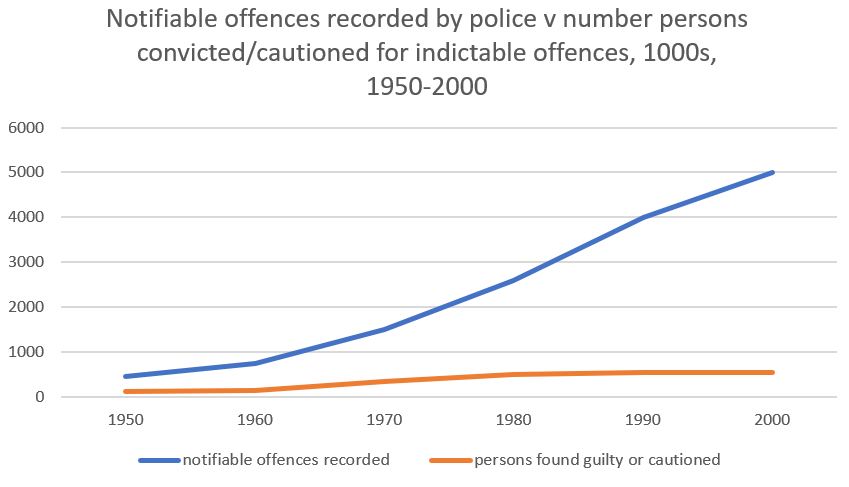

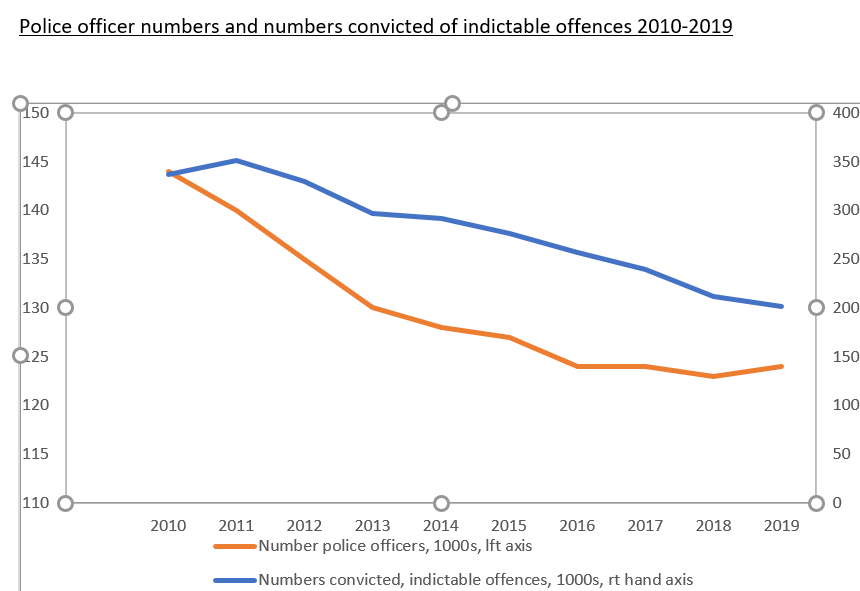
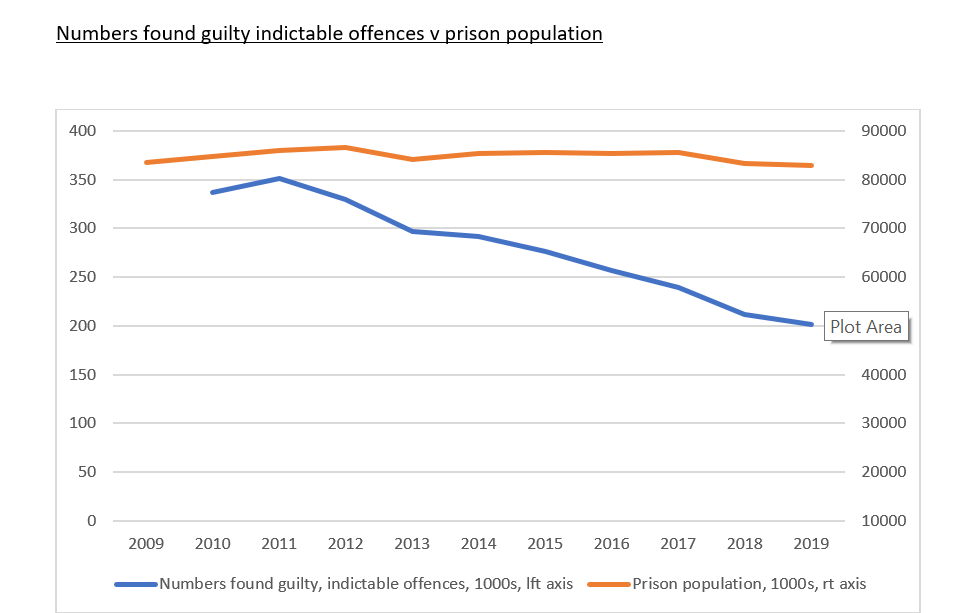
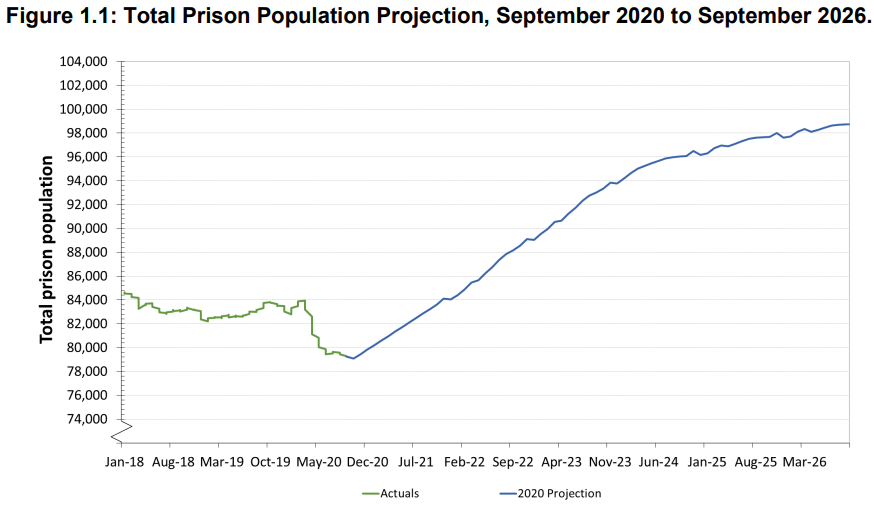
 RSS Feed
RSS Feed